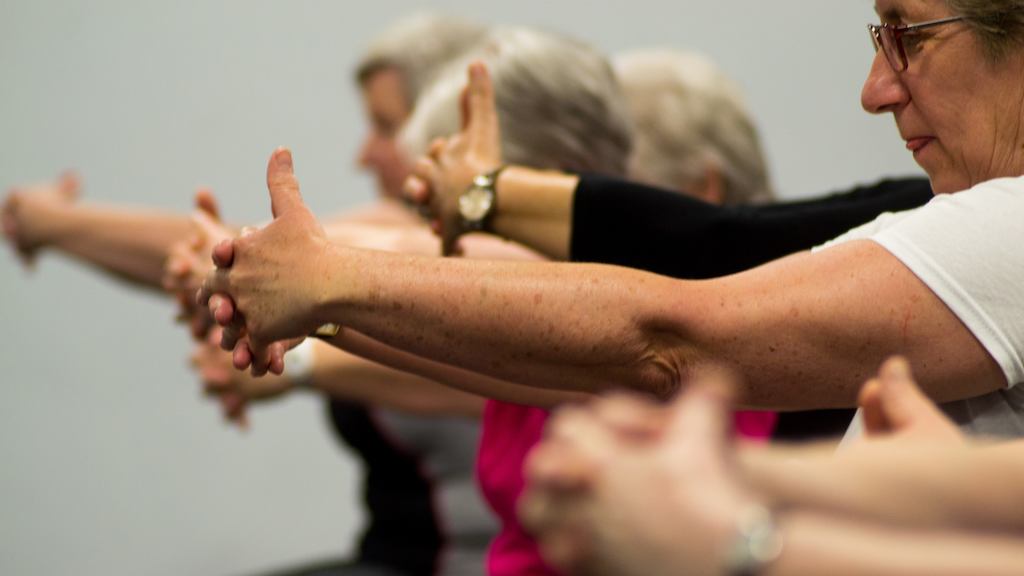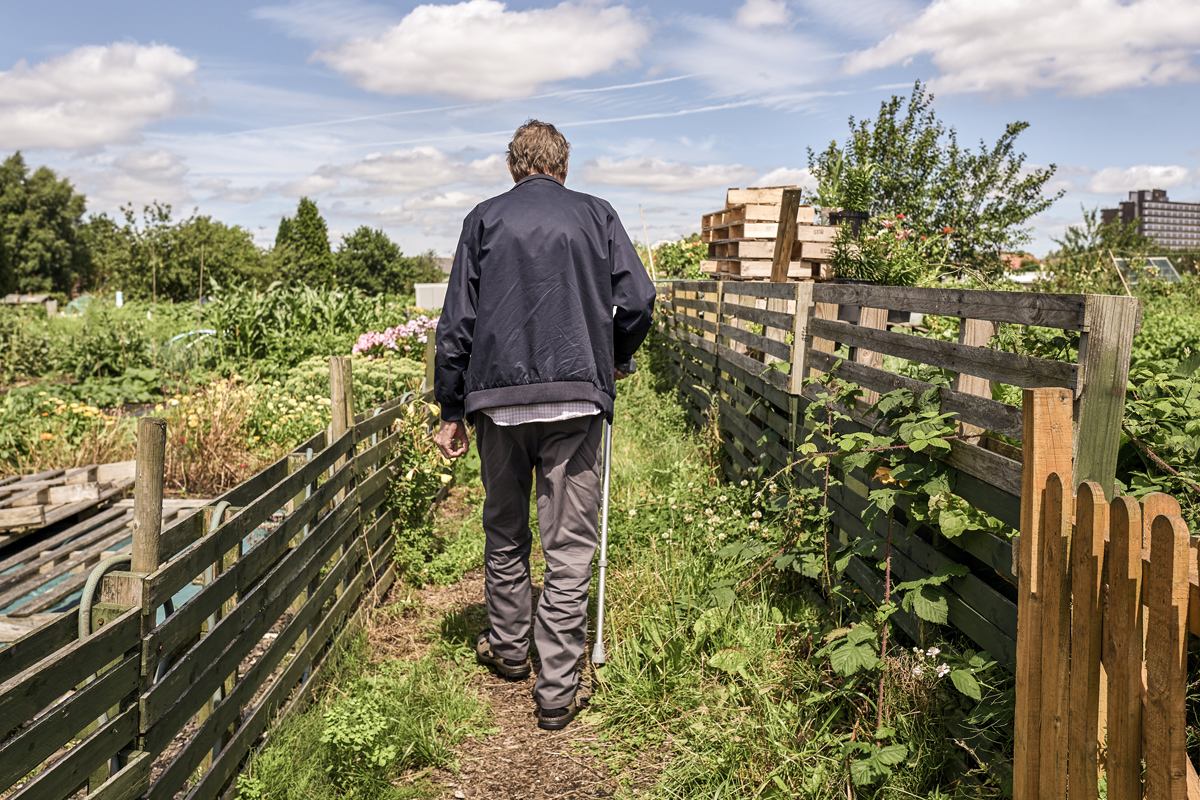A manifesto for better longer lives

Longer lives are an opportunity not just a burden. Politicians need to sign up to a manifesto for ageing better, writes our Chair Lord Filkin.
Our ageing society is both our biggest social change and our greatest achievement.
Longer lives are an opportunity not just a burden. Politicians need to sign up to a manifesto for ageing better.
Our ageing society is both our biggest social change and our greatest achievement. It is made up of two separate trends:
- First a continuing growth in the number of people who are older in our society, as the baby boom birth cohort enters retirement. The Office for National Statistics projects a 51 per cent increase in people aged 65+ between 2010 and 2030.
- Second, we are enjoying a remarkable extension of our lives. A person aged 65 is now likely to live 10 years longer than their parents. Fifty per cent of girls born this year will live to 100 or more.
This extension of life is a social revolution that already offers many of us more years of wellbeing. Yet public discourse about our ageing has focused on the negative story of the increasing costs of health, care and pensions from a larger older population and largely missed the great opportunities our longer lives offer us. We need politicians and all political parties to recognise these opportunities and commit to making it possible for everyone to benefit from a longer life, not just the privileged.
There will of course be significant increases in demand and cost for health and social care services over the next decade, only partly driven by a larger older population. This has been forecast by many studies including the House of Lords report I chaired.[1]
But politicians have been slow to accept this and to recognise it requires much more funding. Politicians have failed to explain to the public that additional funding is necessary, that it can be afforded, albeit with additional taxation, and that it should be paid for fairly across the generations.[2]
Above all they have failed to explain that there are great opportunities for individuals and society from longer lives and it is worth planning and paying for them.
The inequalities of wellbeing in later life
But the biggest public policy challenge of our longer lives is not funding the NHS and social care but the shocking social gradient in ageing. Lives that are much longer are already greatly enjoyed by some sections of society - but not by others.
Poorer people and poorer communities live shorter lives and become ill or disabled earlier. Poorer people are disproportionately affected by high rates and premature chronic ill health conditions and live less happy later lives. The lives of people in Blackpool are 10 years shorter than those in Kensington; they get ill and disabled earlier, and they fall out of work more often.
Addressing the striking inequalities of wellbeing in later life ought to be the focus for all politicians – but it has been surprisingly ignored across the political spectrum and treated as if it was an immutable fact of life. What do we need to do to address this?

What makes for a good later life?
The evidence is clear what makes for a good later life. If, as individuals, we sustain good enough health, are not too worried about money, live in a decent home, have good relationships and a sense of purpose, then we are much more likely to have a happier later life.[3] But far too many people miss out on these opportunities. So what changes are needed so that many more will benefit?
Public debate about our ageing society mostly focuses on people when they are already old. But the key point is that it is too late to address a good later life when we are retired; our prospects for enjoying our later lives are greatly affected by what happens before we are old. Four factors negatively affect this:
- Unhealthy lifestyles, smoking, alcohol, inactivity, obesity.
- Early exit from the labour market and low savings.
- Poor homes and environments that do not sustain our independence.
- Lack of friendships and meaning in our lives.
Consider some of the data that supports this:
- Around a third of people aged 50 and over who stop work before they reach state pension age experience a 50 per cent or more drop in household income.
- A third of 55 to 64 year-old women have no private pension savings.
- More affluent people have fewer depressive symptoms, greater life satisfaction better quality of life and lower levels of loneliness.[4]
- People aged 50 to 64 with two or more limitations in activities of daily living reported very low ratings of life satisfaction and quality of life, high levels of loneliness, and elevated depressive symptoms.
- 40 per cent of the years of healthy life that are lost are preventable through modifying health behaviours (smoking, diet, alcohol, and physical activity), metabolic factors (e.g. high blood pressure) and environment (e.g. pollution).
- Yet 70 per cent of adults do not follow government guidelines on two or more health behaviours.
- 20 per cent of homes occupied by older people fail the Decent Homes Standard.

We need a cross-party political commitment to close these causes of the inequalities in wellbeing, life expectancy and disability free life expectancy so that more people live longer, are financially secure and are in good enough health to enjoy their longer lives.
Because what we do before we are old greatly affects our prospects for a good later life, public policy and individuals need to focus more action on this life stage - roughly people aged between 50 and 70 - and to focus again on those at risk and on the changes that matter most for a better later life.
A manifesto for government and social action to address this should consist of:
- Many more 50 to 70-year-olds living healthier, active lives - reducing their risk of poor health and disability and avoiding, delaying the onset or slowing the progression of disease and disability. We need a much stronger political commitment to healthy lifestyles and to develop a powerful and radical National Strategy for Healthy Ageing.
- Many more 50 to 70-year-olds living in homes ready for their ageing, which are safe, warm, dry, accessible and adaptable - allowing them to remain independent and active for longer. New homes must obviously be age-friendly. Poor owner occupiers in bad homes who lack the resources to modernise their homes need solutions. And the growing number of older private renters must be secure and have decent standards.
- Many more people able to keep in good quality work for longer. Keeping in work is critical for many to have adequate income in later life and in good work with fair pay, security and progression. Employers will need to get much better at retaining older workers through support and flexibility – they will need them.
- Many more people involved in their local communities - with close relationships and wider networks of support. Frequency of contact with friends and relatives is positively associated with life satisfaction and quality of life. There are signs that this agenda for change is being recognised. The government has a Fuller Working Life Strategy, albeit needing more power and cross-government support. And on 21 May the prime minister made a major governmental commitment: "Through our healthy ageing grand challenge, we will ensure that people can enjoy five extra healthy, independent years of life by 2035, whilst narrowing the gap between the experience of the richest and poorest."

A happier, healthier society
These are the key elements for an agenda to reduce the waste of many later lives being lived with poor wellbeing and to close the shocking inequality gaps. The issues will need the persistent support of all parties and all politicians at national and local level. The Centre for Ageing Better is committed to work with others over the next decade to promote the actions needed to bring these about.
It should be unacceptable that in some communities people die 10 or more years earlier and that many people become prematurely ill, old and disabled when others are having the time of their lives at the same age. We know much of what we need to do to change this - now we need the political commitment to do so.
The prize will be a happier, healthier society, a more productive economy, more fiscally sustainable public services and significant increases in wellbeing across our society.
NOTE: This article originally appeared the Fabian Society's report 'Take Good Care: improving support and wellbeing in later lives'.
Take good care: improving support and wellbeing in later life
Footnotes
[1] Ready for Ageing? House of Lords 2013 and The Long-term Sustainability of the NHS and Adult Social Care, House of Lords 2017
[2] A New Generational Contract. Final Report of the Intergenerational Commission, The Resolution Foundation, 2018
[3] Centre for Ageing Better 2015
